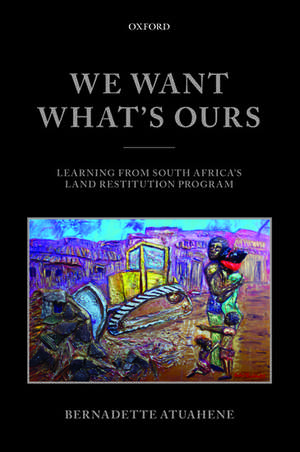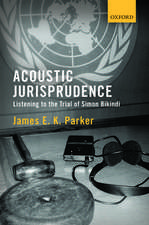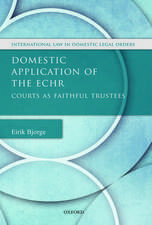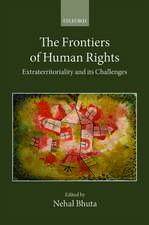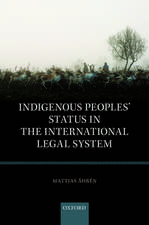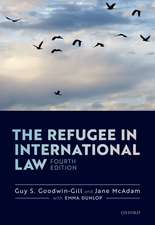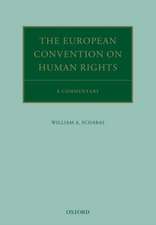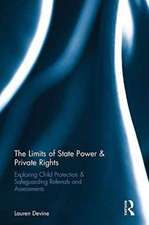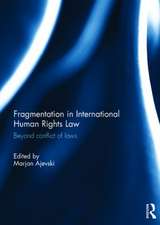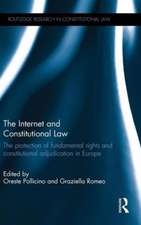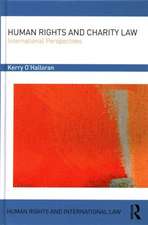We Want What's Ours: Learning from South Africa's Land Restitution Program
Autor Bernadette Atuaheneen Limba Engleză Paperback – 28 ian 2016
| Toate formatele și edițiile | Preț | Express |
|---|---|---|
| Paperback (1) | 187.94 lei 31-37 zile | |
| OUP OXFORD – 28 ian 2016 | 187.94 lei 31-37 zile | |
| Hardback (1) | 358.55 lei 31-37 zile | |
| Oxford University Press – 26 iun 2014 | 358.55 lei 31-37 zile |
Preț: 187.94 lei
Preț vechi: 206.86 lei
-9% Nou
Puncte Express: 282
Preț estimativ în valută:
35.96€ • 37.55$ • 29.70£
35.96€ • 37.55$ • 29.70£
Carte tipărită la comandă
Livrare economică 04-10 aprilie
Preluare comenzi: 021 569.72.76
Specificații
ISBN-13: 9780198783350
ISBN-10: 0198783353
Pagini: 208
Dimensiuni: 155 x 233 x 12 mm
Greutate: 0.33 kg
Editura: OUP OXFORD
Colecția OUP Oxford
Locul publicării:Oxford, United Kingdom
ISBN-10: 0198783353
Pagini: 208
Dimensiuni: 155 x 233 x 12 mm
Greutate: 0.33 kg
Editura: OUP OXFORD
Colecția OUP Oxford
Locul publicării:Oxford, United Kingdom
Recenzii
This book is highly recommended to all those who are interested in transitional justice, land restitution or South Africas post-apartheid experience.
Bernadette Atuahene's We Want What's Ours is a powerful discussion of the impacts - economic, physical, and emotional - that Apartheid-era property dispossessions have had on South Africa's non-white urban dwellers. During that era, government-supported projects proceeded in areas occupied by non-whites with only the most minimal regard for the belongings of the local occupants. Atuahene uses extensive interview material to illuminate the still-raw sensibilities raised by past instances of property loss, as well as the difficulties that post-Apartheid South Africa has had in attempting to provide reparation.
This book contains a detailed description of the steps taken in post-Apartheid South Africa to remedy past deprivations of land by racist colonial and Apartheid regimes. It emphasizes that much more than financial loss is involved. Land deprivation includes also the taking of the dignity of the former owners. If there are to be meaningful reparations, a programme designed to help restore that lost dignity is essential. The author has conducted impressive research and many moving interviews with victims of land deprivation. This book is essential reading for all interested in restorative justice.
Professor Atuahene's book brings a fresh perspective to analysis of South Africa's land restitution programme. For her analytical framework, she focuses on the right of every person to human dignity. She examines how this was impacted by racial land dispossession under colonialism and apartheid. She then asks whether dignity has been restored through the remedies afforded under the Constitution. The focus of her research is also novel. She concentrates on urban rather than rural racial dispossession. In assessing the impact of the remedies afforded, she provides the results of her ground-breaking research on how claimants' have used and benefitted, in particular, from financial compensation awards.
This book is a sober and nuanced reflection on the dignitary harms that accompany displacement of a people from their place on earth. Atuahene favors remedies that acknowledge and respond to those harms while revealing the successes and failures of South Africas approach to this problem. Atuahene suggests ways to improve such responses not only in South Africa but in the many places around the world that have suffered dignity takings. A compelling and humane contribution to our understanding of what we owe each other.
Bernadette Atuahene's We Want What's Ours is a powerful discussion of the impacts - economic, physical, and emotional - that Apartheid-era property dispossessions have had on South Africa's non-white urban dwellers. During that era, government-supported projects proceeded in areas occupied by non-whites with only the most minimal regard for the belongings of the local occupants. Atuahene uses extensive interview material to illuminate the still-raw sensibilities raised by past instances of property loss, as well as the difficulties that post-Apartheid South Africa has had in attempting to provide reparation.
This book contains a detailed description of the steps taken in post-Apartheid South Africa to remedy past deprivations of land by racist colonial and Apartheid regimes. It emphasizes that much more than financial loss is involved. Land deprivation includes also the taking of the dignity of the former owners. If there are to be meaningful reparations, a programme designed to help restore that lost dignity is essential. The author has conducted impressive research and many moving interviews with victims of land deprivation. This book is essential reading for all interested in restorative justice.
Professor Atuahene's book brings a fresh perspective to analysis of South Africa's land restitution programme. For her analytical framework, she focuses on the right of every person to human dignity. She examines how this was impacted by racial land dispossession under colonialism and apartheid. She then asks whether dignity has been restored through the remedies afforded under the Constitution. The focus of her research is also novel. She concentrates on urban rather than rural racial dispossession. In assessing the impact of the remedies afforded, she provides the results of her ground-breaking research on how claimants' have used and benefitted, in particular, from financial compensation awards.
This book is a sober and nuanced reflection on the dignitary harms that accompany displacement of a people from their place on earth. Atuahene favors remedies that acknowledge and respond to those harms while revealing the successes and failures of South Africas approach to this problem. Atuahene suggests ways to improve such responses not only in South Africa but in the many places around the world that have suffered dignity takings. A compelling and humane contribution to our understanding of what we owe each other.
Notă biografică
Bernadette Atuahene is a Professor of Law at Chicago-Kent College of Law, Illinois Institute of Technology, and a faculty fellow at the American Bar Foundation. She is a graduate of Yale Law School and Harvards Kennedy School of Government. She has done extensive research, writing, speaking, and consulting on land issues. We Want Whats Ours is part of a larger body of work that includes a short documentary film called Sifuna Okwethu, which is about one South African familys fight to regain their land stolen by the apartheid authorities; and a curriculum to accompany the film that encourages students to explore how land injustice in South Africa relates to the many injustices they may have witnessed in their own communities. For more information, go to the book website: wewantwhatsours.com
